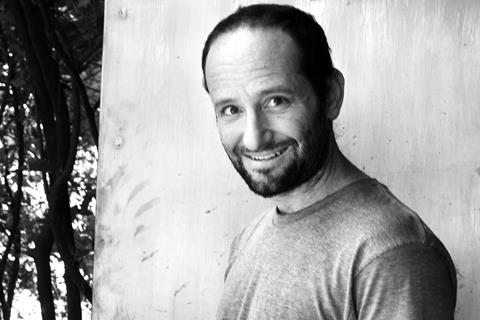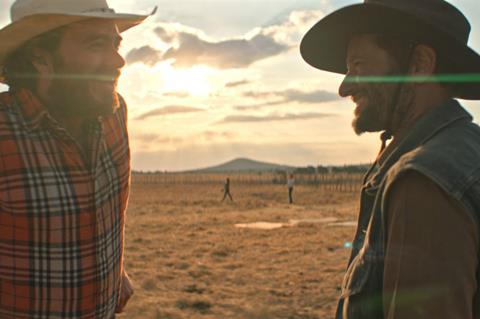Reygadas will talk about the festival’s support of auteur filmmaking at Friday’s master-class.

When Mexican director Carlos Reygadas describes the International Film Festival Rotterdam (IFFR) as “probably the best film festival in the world,” there is a subtext to his remarks. He has been invited to give a masterclass at this year’s festival at which one of the topics will be his dismay at what the calls the ““new quasi-totalitarianism in thought of what film is.”
He expands on his theme: “Internet and social media, instead of truly liberating our minds ands hearts in the way we connect to different forms of art, some form of totalitarian taste has developed, pushed by the great corporations and pushed by most critics.”
“These critics in festivals are so attached to the immediate feeling they get,” he suggests. “They don’t give time for films to develop in any way.”
He has a withering phrase - “Hollywood plus” - for what he considers to be ersatz art cinema, which is “taking all the space.” Reygadas feels the squeeze with his own work “in terms of coverage, sales, prices and exposure and how it is less and less and less, not only for me but for people who are doing things in that level and direction.”
The Mexican director sees Rotterdam as one of the few events in which auteur filmmaking is still treated with proper respect. “It’s such a wonderful festival,” he says, praising everything from the curation to the quality projection, the social side of the event and the lack of hierarchy.
Reygadas first came to Rotterdam with his debut feature, Japon in 2002. The film received support from the festival’s Hubert Bals Fund and went on to screen in the Directors’ Fortnight in Cannes where Reygadas received a Camera d’Or special mention.
Since his first visit in 2002, Reygadas has been back to Rotterdam with all of his other films. His latest feature, Nuestro Tiempo, is screening in IFFR’s Deep Focus section. Reygadas also plays one of the leading roles, a rancher raising bulls, and his real wife, Natalia López, appears as his wife in the film. The film is about a marriage is going through a rocky phase and the woman is having an affair.

“It is really a secondary matter,” the director says of his decision to cast himself and his wife. “It shouldn’t change the nature of the film.”
He talks of the different ways in which screen actors can approach their craft. “One is method acting in which you try to create a fiction in which you are the character. You are the woman suffering infidelity or you are the soldier who has to go and do this and that.
“Then, there is another system which not used very often but that Kiarostami used and that Bresson used which is just a system of presence. You’re just there and the whole of the cinematic language creates the character. That’s the system I believe in.”
Reygadas adds his “psychological identification” with his character in the film was “nil, zero.” He never felt “bothered” or “emotional” about the actual plot, which involves his character being cuckolded. “It was really just acting. I could finish a shot of this struggling and fighting of the couple and then I would be laughing, talking about what we were going to eat that day. I really felt far away from the actual character.”
While fully supportive of the campaign to ensure greater gender diversity at the big European and North American festivals, Reygadas believes it is also important to ensure t filmmakers from “the so-called Third World” and the “non-Christian world, films let’s say of the poor” should be better represented too.
It is a fair bet Reygadas is the only filmmaker in Rotterdam who was also an international rugby player. A year at public school in Yorkshire, in northern England cemented his love of cricket and rugby and he went on to put in a few appearances for the Mexican national team, playing first as a flanker and then as an inside centre.
“Unfortunately, rugby is not big in Mexico as I wish it was,” he laments. “If I had been English, I would have loved to play rugby more. That is a thing I regret in my life, that I couldn’t play more rugby. I did play a couple of matches and the national team may sound like a big thing but it would probably be like a sixth-form team in a good rugby school in England. I think at that time, there were about 5000 rugby players in Mexico so it’s not a big deal,”















![[L-R]: Amanda Villavieja, Laia Casanovas, Yasmina Praderas](https://d1nslcd7m2225b.cloudfront.net/Pictures/274x183/6/4/1/1471641_pxl_20251224_103354743_618426_crop.jpg)






![[L-R]: Amanda Villavieja, Laia Casanovas, Yasmina Praderas](https://d1nslcd7m2225b.cloudfront.net/Pictures/100x67/6/4/1/1471641_pxl_20251224_103354743_618426_crop.jpg)


No comments yet